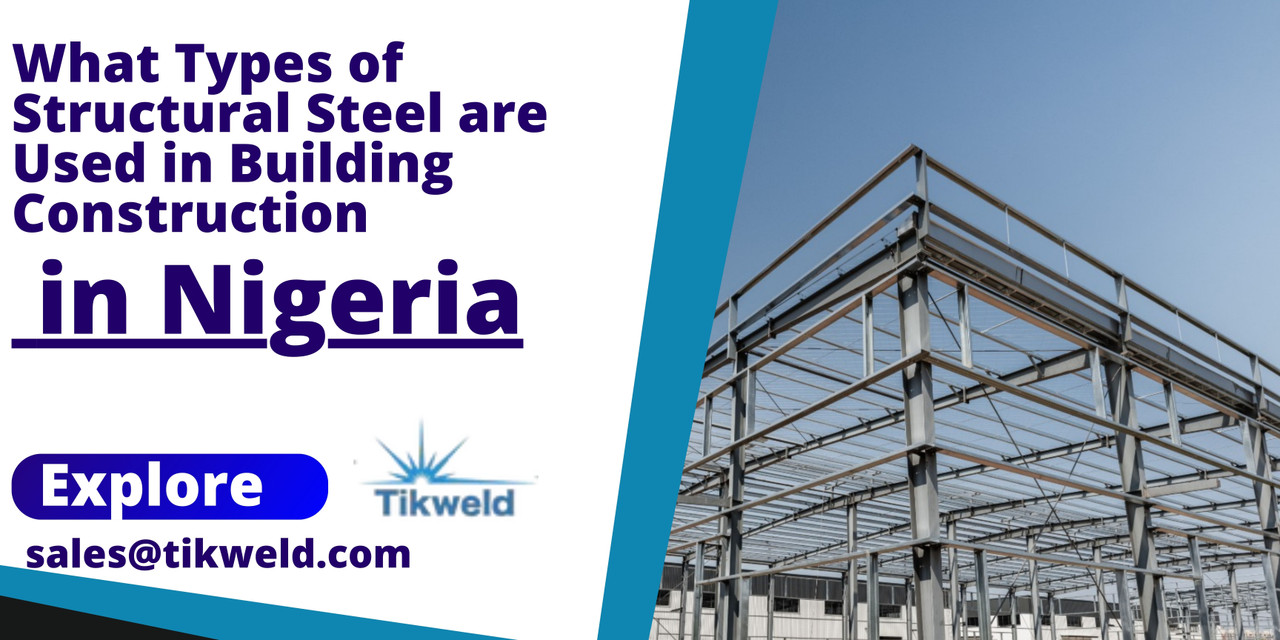What Types of Structural Steel are Used in Building Construction in Nigeria?
Structural steel is a highly adaptable carbon steel typically containing up to 2.1% carbon by weight. The American Society sets standards for composition and dimensional tolerances for all structural steel grades for Testing and Materials (ASTM) International. This article highlights the types of structural steel used in building construction in Nigeria.
Types of Structural Steel Used in Building Construction
Structural steel is a vital building material for its durability, versatility, and strength. It's used in various applications, from bridges and transmission towers to commercial and residential buildings. The following are some of the commonly used types of structural steel in building construction:
A36: A36 is a low-carbon steel with a yield strength of 36,000 psi. A36 is commonly used for columns, beams, decking, and finish elements. It's widely preferred and versatile due to its excellent machinability and low cost.
A572: A572 is a high-strength low-alloy steel (HSLA) plate with yield and tensile strength similar to A36 steel. It's better suited for higher strength-per-weight ratio applications like transmission towers, roller coasters, and bridges.
A588: A588 steel has a yield and tensile strength greater than 46,000 psi, higher than A36 and A572. It offers superior atmospheric corrosion resistance, making it ideal for outdoor applications.
A514: A514 is a high-performance alloy steel with a yield strength of 100,000 psi and good weldability. It primarily supports heavy loads in cranes and other high-wear machine applications.
Approximately 25% of buildings comprise structural steel, including steel frames, beams, columns, bars, and plates. Understanding the different types of structural steel and their properties is crucial in selecting the suitable material for a specific building application.
Attributes of structural steel for Construction
The main attribute of structural steel in construction is its ability to absorb strength. The three critical mechanical properties that make structural steel crucial for steel construction: Yield strength, tensile strength, and elongation.
Yield strength
Yield strength refers to the minimum force required to achieve permanent deformation. Load-bearing steel should have a yield strength greater than 35,000 psi, while non-load-bearing material requires a minimum yield strength of 33,000 psi.
Tensile strength
Tensile strength is the ultimate or maximum stress a material can withstand before permanent failure. Tensile strengths have dimensions of force per unit area, commonly expressed in units of pounds per square inch (psi). Structural steel can have a tensile strength of 36,000–50,000 psi but can reach up to 58,000–70,000 psi.
Elongation
Elongation is the degree of elasticity before rupture. It is expressed as a percentage of the material's original length. The greater a material's tensile strength, the less it will elongate under stress. There is no elongation requirement for non-structural steel.
Further reasons why use Structural steel as a building material
- The high strength-to-weight ratio makes it lightweight and easier to use than concrete.
- Good machinability, resulting in quick and efficient cutting with a good finish
- Ductility, allowing for the material to withstand large deformations without fracturing, making it earthquake-resistant
- 100% recyclable, making it sustainable and environmentally friendly
- Cost-effective, with lower initial costs and fewer risks compared to other building materials
In conclusion, structural steel is a versatile and crucial building material due to its durability, versatility, and strength. The commonly used types of structural steel in building construction are A36, A572, A588, and A514, which vary in their properties and applications. Understanding the mechanical properties of structural steel, including yield strength, tensile strength, and elongation, is crucial in selecting the suitable material for a specific building application. Additionally, structural steel offers benefits such as a high strength-to-weight ratio, good machinability, ductility, recyclability, and cost-effectiveness, making it a preferable option for construction.
Contact us for a free quote for your project.







